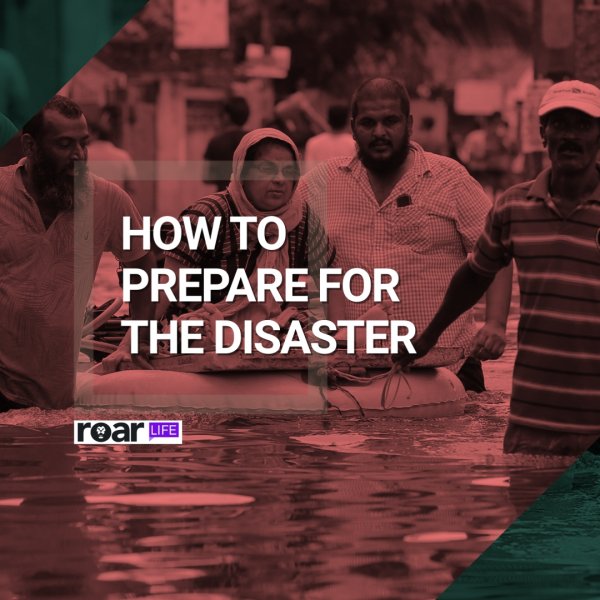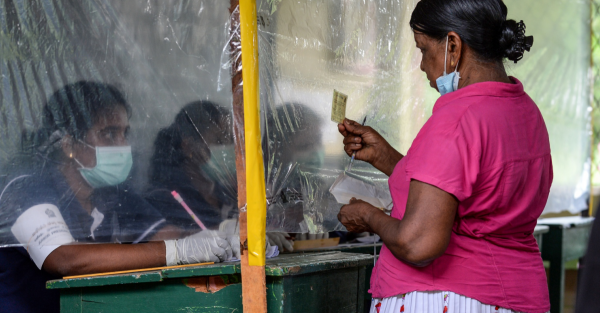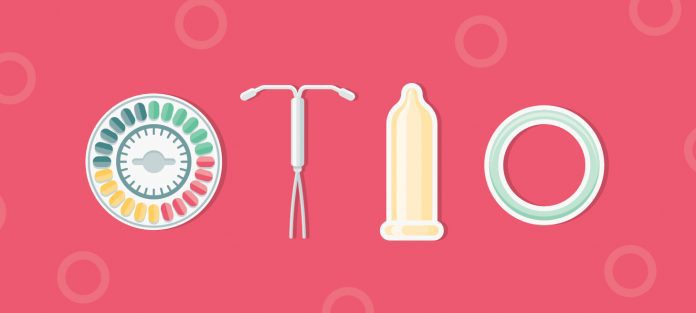
The ongoing pandemic has redirected global attention, action and resources largely towards the SARS-CoV-2 virus, resulting in service disruptions in other health services.
The testing, diagnosis, treatment and monitoring of Sexually Transmitted Infections (STIs), in particular, has witnessed shifting trends since the onset of the pandemic. In addition to the reallocation of resources from STI services to COVID-19 services, reasons suggested for these changing trends include a reduction in testing due to worries about attending clinics during a virus outbreak and a reduction in sexual encounters (and thus transmission) due to fears of COVID-19 infection. At the same time, however, it has also been suggested that with the widespread loss of livelihood and fewer employment opportunities, transactional sex, sex work and sexual exploitation could be seen to have increased during this period.
The disruption in sexual health services at this time is therefore an issue of significant concern. As has been the case during similar situations in the past (for example, during the Ebola crisis) the COVID-19 pandemic has negatively affected critical sexual and reproductive health access and provision across the world. With this in mind, the following article will explore the types of viral STIs as well as methods of prevention, testing and treatment.
What Are STIs?
STIs are infections that spread predominantly through sexual contact, including vaginal, anal and oral sex, but can also be transmitted through non-sexual means, such as via blood or from mother to child during pregnancy and childbirth. STIs can be bacterial, viral or parasitic. While bacterial infections can be treated and cured with antibiotics, viral STIs cannot be cured, but symptoms can be reduced or modified through antiviral treatment.
The lack of open discussions on STIs, the stigma around them, and the fact that many of them do not present symptoms result in lower rates of testing. Yet, even though one may be asymptomatic, one could still pass on an infection.
Viral STIs: Symptoms And Treatment
“Usually when patients who have symptoms or have had unprotected sex come to see me, they’re very worried,” said Dr Iresh Jayaweera, Consultant Venereologist at the National STD and AIDS Control Programme (NSACP). “I have had cases where people have tried to wash their genitals with products like dettol and other irritants, or have become very anxious after having Googled their symptoms,” he said.
Dr Jayaweera also addressed a common misconception that many people hold: “With the increased use of dating apps, youth, especially, face a higher risk of getting and passing on STIs. There’s a common misconception that you can tell who has an STI or who doesn’t based on appearances, which is false and problematic, and results in fewer safety measures taken when engaging in sex,” he said.
Without testing and treatment, serious complications could potentially develop. However, if identified at an early stage, many STIs can be cured or — in cases where this is not possible — treated in order to minimise future health complications. Therefore, Dr Jayaweera explained, should one suspect they have an STI, meeting a qualified doctor who can arrange testing and treatment is the best procedure to follow.
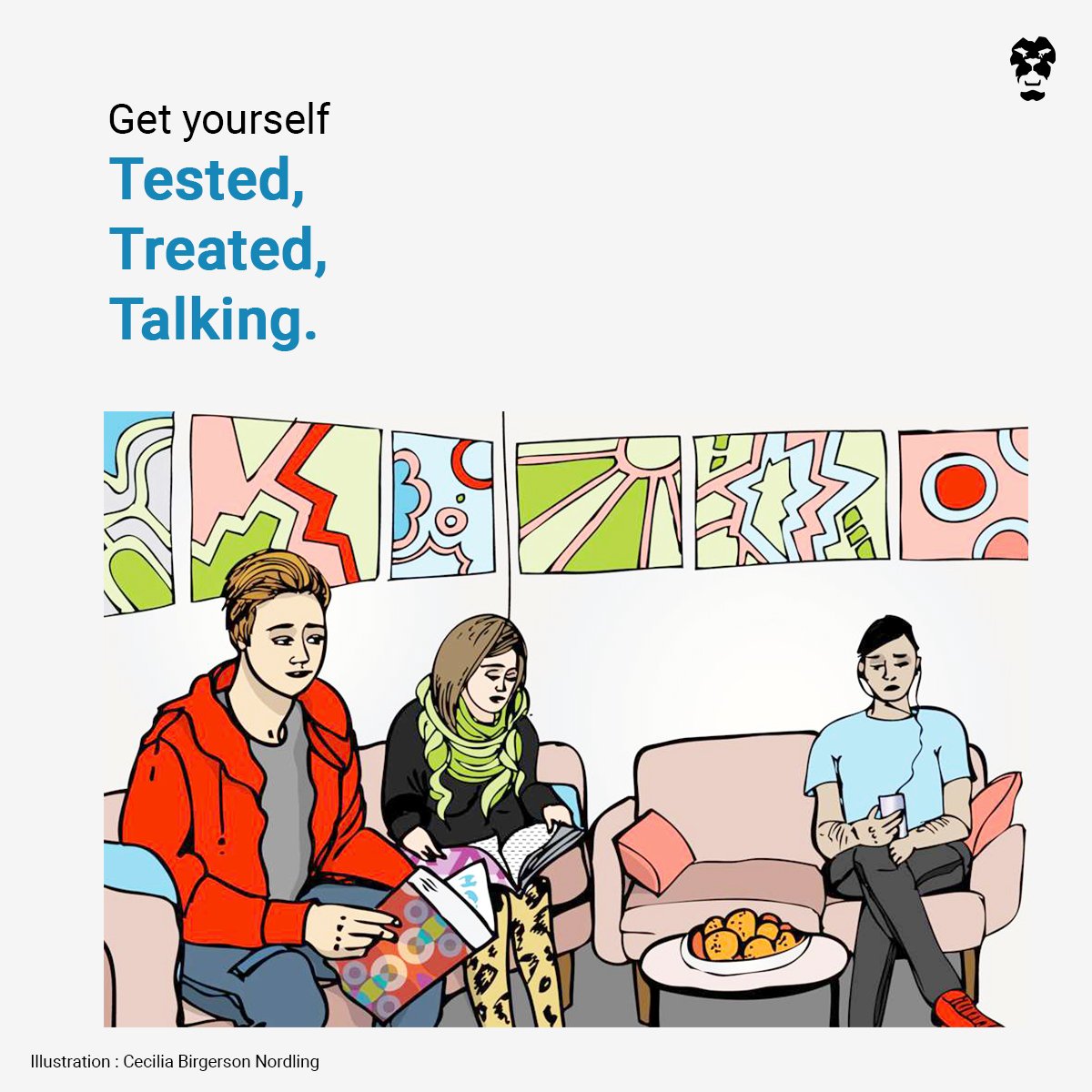
“The first stage is diagnosing an STI,” explained Dr Jayaweera. “HIV, Hepatitis-B and herpes can be diagnosed with a blood test, while others need physical examinations and samples from the urethra and cervix. After diagnosing a viral STI, they can be treated with antiviral medications (in the cases of genital herpes, HIV and Hepatitis-B) or through cryotherapy (in the case of genital warts that result from HPV infection).
Types Of STIs
Below we explore four types of viral infections: the human papillomavirus (HPV), which can cause genital warts and/or cancers; herpes simplex virus (HSV-I and HSV-II), which can cause oral and/or genital sores; Hepatitis B, which can cause liver cancer or chronic liver disease; and the human immunodeficiency virus (HIV), which attacks the body’s immune system and, if left untreated, can develop into acquired immunodeficiency syndrome (AIDS).
Human papillomavirus (HPV)
There exist over 100 types of HPV strains — some that are cancer-causing, some that cause genital warts, and many that don’t cause symptoms but clear up within a few months without any intervention (with about 90% clearing up within two years).
HPV is the most common viral infection of the reproductive tract, with most cervical cancers (99% of them) linked to genital HPV infection. In addition to cervical cancer, HPV-associated cancers include those of the genitals, mouth and throat. With cervical cancer ranked as the second leading cause of female cancer deaths in Sri Lanka, screening for cervical cancer is one of the main areas covered by the Family Health Bureau’s (FHB) Well Woman Programme.
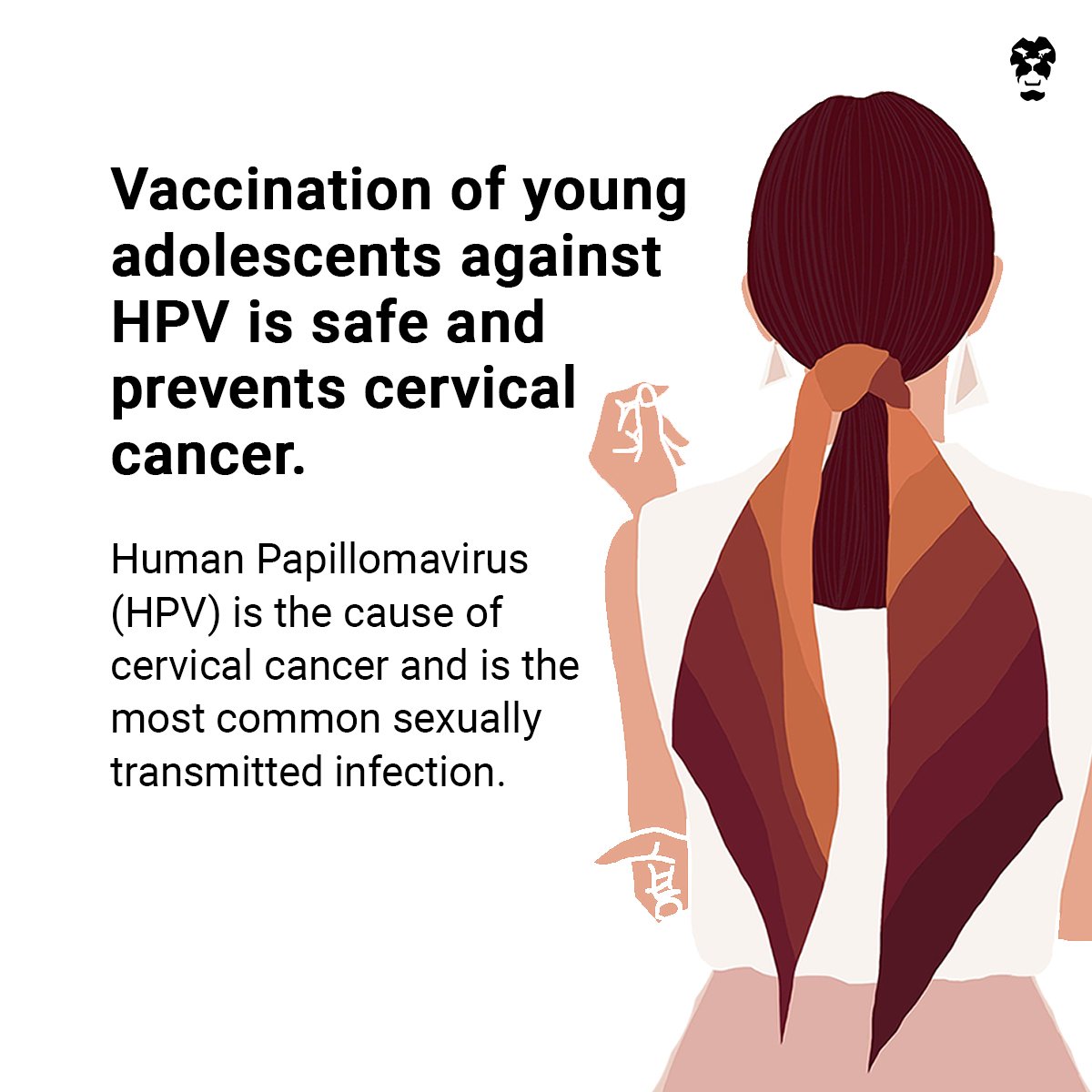
Dr. J. Padmaka Silva, a Consultant Community Physician at the Family Health Bureau (FHB), explained the process of screening for cervical cancer at the MoH’s Well Woman Clinics. Once counselled on the screening process and after having their questions answered, clients between the ages of 35 and 45 undergo a pap smear. This is done by inserting a speculum into the vagina, and taking a sample of cells from the cervix to test for abnormalities. Dr. Silva also said that if somebody outside this age group requests a pap smear, they could be considered based on their requirements and the availability of resources.
He explained that once a sample is taken, a slide would be prepared and sent to a lab for testing. “What the medical lab technicians will look to identify are cellular changes that can happen after infection with the HPV. The virus changes the cells in the cervix, so we take the pap smear from the cervix. If there are any changes in the cells, we can detect that there are early chances of cervical cancer,” he said.
Dr. Jayaweera, meanwhile, explained, “Although viral infections are treated with antiviral drugs, in the case of HPV there aren’t any such antiviral drugs but the virus can often resolve naturally. In cases where it doesn’t resolve but persists to cause genital warts, these warts can be removed physically using cryotherapy or electrocautery.”
Using condoms during sex is an extremely important preventative measure but since HPV is passed from skin-to-skin contact, this may not always protect against its transmission. In 2017, the MoH incorporated the HPV vaccine into the National Immunisation Programme through the school immunisation programme. All girls aged 10 receive two doses of the vaccine before they reach the age of 13. This has been an important step towards reducing the incidence of cervical cancer. However, less attention (when it comes to state-run efforts) has been given to the strains of HPV that cause genital warts.
You are advised to get the vaccination at an early age, prior to sexual contact, as the vaccination provides less benefit if one has already been exposed to the virus. However, for those who have not received the vaccine prior to having engaged in sexual activity, the HPV vaccine (for cancer-causing as well as genital-wart causing strains) can be acquired at private hospitals.
Herpes simplex virus (HSV)
Herpes is a viral infection that can be categorised as HSV-1 (which causes oral sores in or around the mouth) and HSV-2 (which causes genital sores). Most herpes infections are asymptomatic, but can still be passed on in the absence of blisters or ulcers at the site of infection. Antiviral medications are the most effective treatment available for people living with HSV, as these can help to reduce the severity and frequency of symptoms, although it cannot cure the infection.
In 2019, genital herpes was among the most common STIs reported, comprising 29% of all the reported STIs. From 2010 to 2019, there has been a gradual increase in HSV-II diagnosis.
“I am currently living with herpes,” Anuki* told Roar Media, describing how she tested positive after an outbreak of genital sores a few years ago. “In the beginning, it definitely wasn’t easy because it seemed larger than life and the fact that it was incurable made it even worse.” Anuki explained how she went about navigating her situation: “Locally, I didn’t find many resources about herpes — just information online, yet resources on how to deal with it at that time would have been super helpful,” she said. Although initially anxious about her situation, Anuki said she felt reassured after speaking with the doctors she met with for testing and treatment.
However, abusive and humiliating treatment by healthcare providers is one of the reasons why many are reluctant to get tested. More on this later.
Hepatitis B (HBV)
Hepatitis B is a viral infection that attacks the liver. Sri Lanka is considered a low endemic country for Hepatitis B infection compared to some of its South Asian neighbours, such as India and Bangladesh. One of the main reasons for this is the high coverage of the Hepatitis B vaccination, which contributes to low prevalence.
Dr. Silva noted that the vaccines for Hepatitis B are safe and highly effective, and are provided to all Sri Lankans through the National Immunisation Programme in three doses (at two, four and six months) after birth.
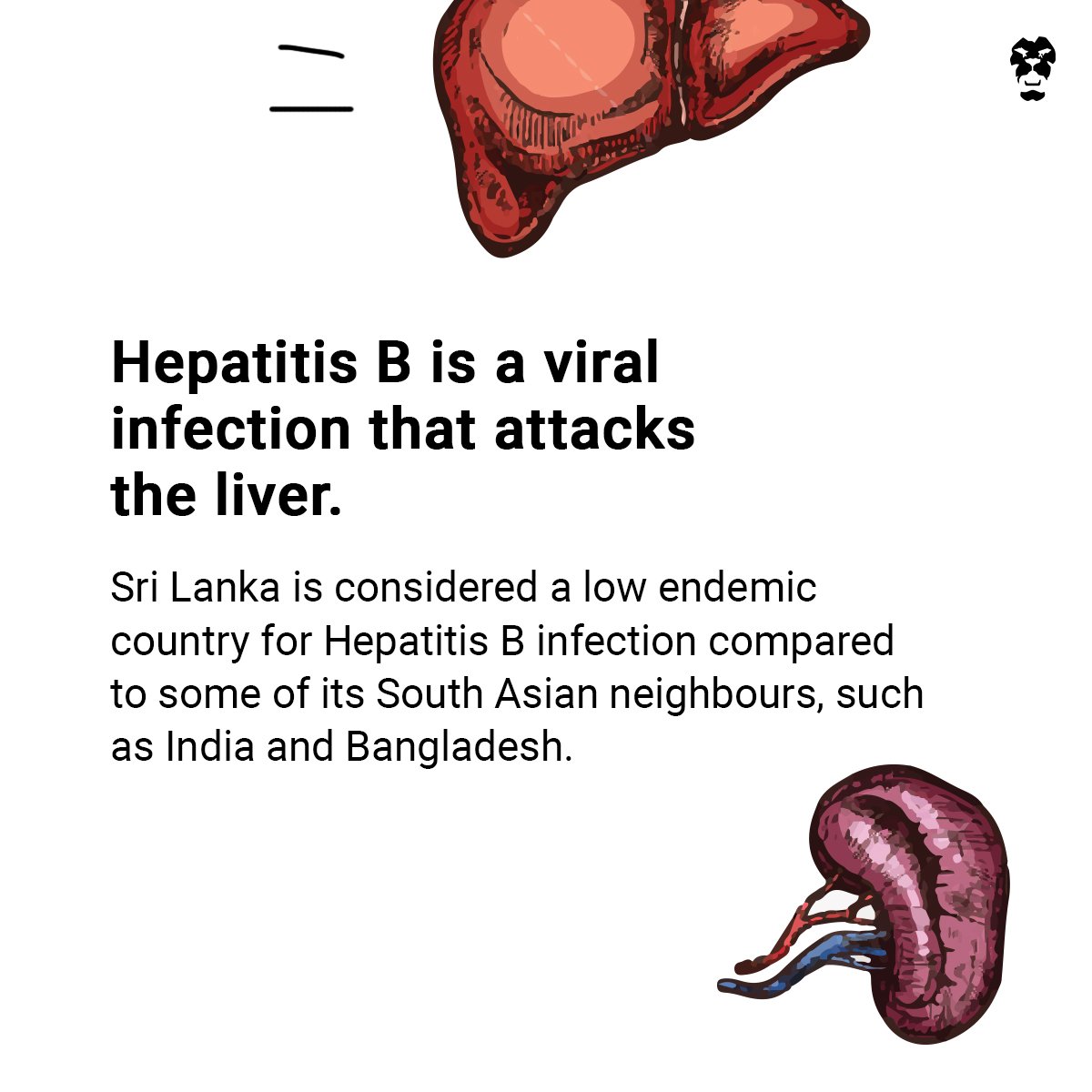
Human immunodeficiency virus (HIV)
HIV is a virus that attacks the body’s immune cells, which help the body fight infection, making a person more vulnerable to other infections and diseases (known as opportunistic diseases). The infection gradually leads to immunodeficiency, with the most advanced stage of HIV infection being acquired immunodeficiency syndrome (AIDS). AIDS is defined by the development of certain cancers, infections or other severe long-term clinical manifestations.
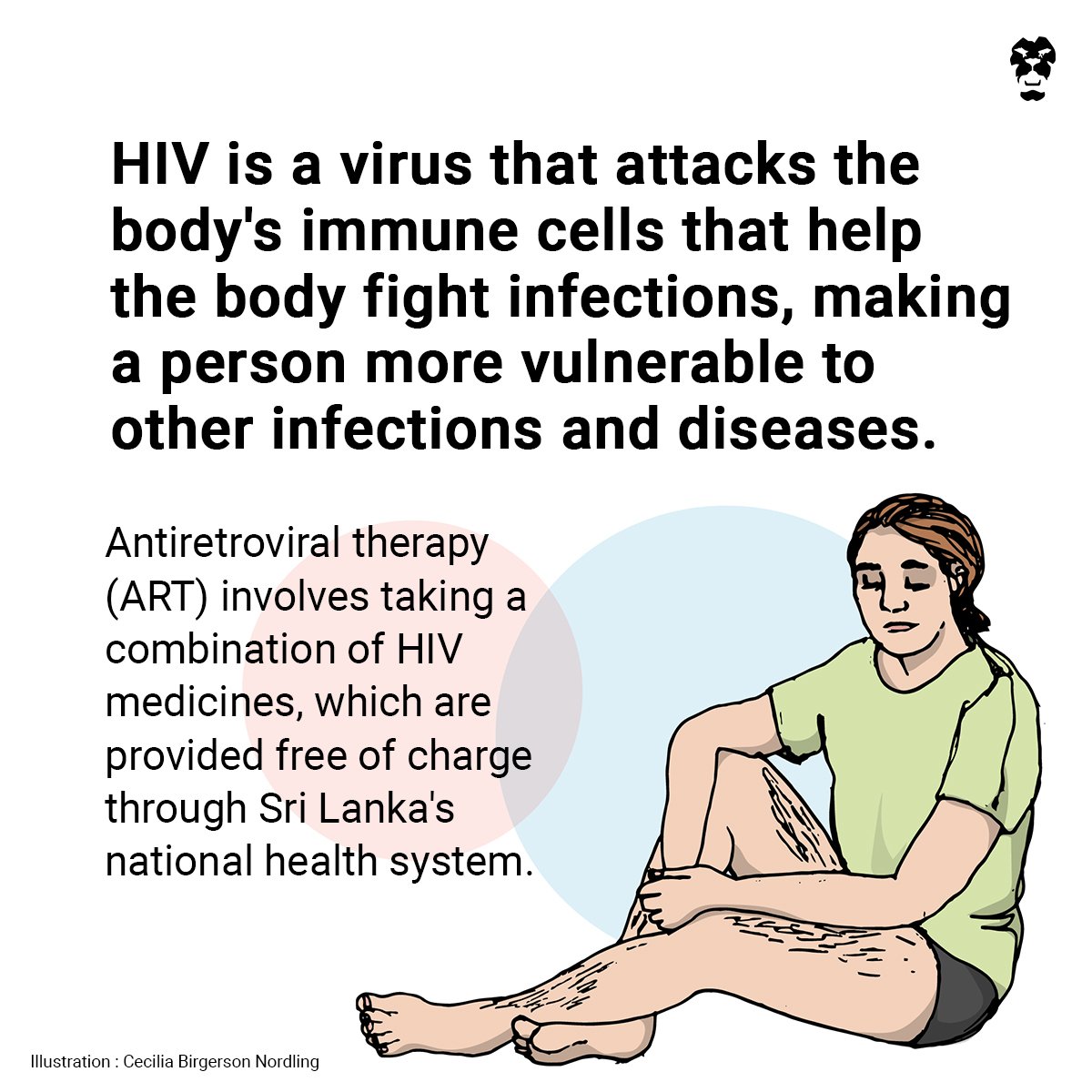
However, with the advancement of modern medicine, many people with HIV can live long, healthy lives with practically no risk of infecting others through sex.
Antiretroviral therapy (ART) involves taking a combination of HIV medicines, which are provided free of charge through Sri Lanka’s national health system. The main goal of HIV treatment is to reduce a person’s viral load to an undetectable level. People living with HIV who maintain an undetectable viral load have effectively no risk of passing on HIV to their HIV-negative partners through sex.
Dr Jayaweera noted that in addition to effective ART drugs, those who may have been exposed to HIV could have access to post-exposure prophylaxis, provided that it is taken within 72 hours.
Getting Tested And Treated
As previously established, getting tested for and seeking medical advice regarding STIs is vital in mitigating risks posed by the infections. The following are organisations and initiatives that Sri Lankans can reach out to for help and advice:
The National STD/AIDS Control Programme
Adhil Suraj, Digital Media Outreach Coordinator at the NSACP and Youth Advocate for HIV/STD awareness, described one of the first projects he was involved with at the NSACP — one funded by US-based NGO FHI 360 under its Linkages Project, which encourages people to get tested for HIV.
“We developed an online trilingual platform — Know4Sure! — through which people could answer a few simple questions related to recent sexual activity, be given an assessment of their HIV risk level, and book an appointment to get tested,” explained Suraj. He added that depending on whether they received a high, middle or low-risk assessment, people could opt to book an appointment at either the NSACP or one of the listed private clinics working with the platform.
“It’s a very simple process that allows people to book appointments without the fear and anxiety many have about doing so via the phone or face-to-face,” he said. He also mentioned that the service was 100% private and confidential, with all the data secured under the government’s privacy policies. Suraj explained the process that people could follow to make an appointment to get tested using the Know4Sure website. Once an appointment is made through the system, a pin number is sent to the client’s mobile phone. Suraj, who checks the back end of the system, then calls the client to confirm their appointment.
Once at the NSACP, clients receive a booking number at the reception. They then register their details with a nurse or one of the Public Health Inspectors (PHI) available. Following this, clients meet with a doctor to discuss their concerns and needs. The doctor takes down their history and takes the necessary blood and fluid samples. Once the results are available, a report is sent to the client online, and they also receive a text message about a follow-up appointment, if necessary.
Suraj noted that the benefit of this service is that anyone can access the online service and receive basic counselling.
Ministry of Health’s Well-Woman Clinics
In 1996, the MoH established a Well-Woman Clinic programme around the country, focusing on women at and over 35 years of age.
Dr Padmaka Silva noted, “All women — symptomatic or not — can walk into our clinics, which are located in Ministry of Health (MoH) offices and surrounding clinic centres of every MoH area.”
The Family Planning Association
Established in 1953, the FPA is one of the pioneering organisations for sexual and reproductive health work in Sri Lanka. It is located on Bullers Lane in Colombo 7 and has centres across the country.
A senior medical doctor at the FPA, who requested anonymity, explained the process of getting tested: “First we register the client. We then give them counselling services where a medical officer provides them with accurate information and advice on different sexually transmitted infections, safer sex practices, how to use condoms accurately, etc.” Samples are then taken for testing — some tests are done at the FPA lab and others are sent to partner labs. Results for certain tests can be obtained within the same day. However, due to COVID-19-related disruptions, test results may currently take a little longer than before.
“We offer post-test counselling after the test results are issued, including advice about necessary management plans and making referrals as per the national guidelines,” the doctor explained.
The FPA also has trilingual hotline services, which are handled by qualified counsellors, where you can obtain information and advice on STIs and STI services. You can also get tested and treated at a range of private hospitals, which offer STI testing as independent tests or else under comprehensive health packages.
Stigma And Discrimination
In spite of Sri Lanka making testing and treatment available and largely accessible, Suraj described how many individuals have been subjected to stigma and discrimination in healthcare settings on account of their sexual orientation and gender identity, and how this impacted their willingness to seek medical help. However, he noted that the National STD/AIDs Control Programme (NSACP) does run a complaints system at its centre in Colombo 10, which people can use if they feel they have been treated in a discriminatory manner.
The stigma around STIs also prevents open discussions about sexual health and safety. For example, one 2012 study in Kandy found that 94% of the 112 male respondents and their sexual partners never enquired into one another’s STI status before or after having sex. The reason given was that they believed asking for such information would harm their relationship. In the study sample, 60% were found to have STIs.
Anuki, meanwhile, emphasised, “People should know that it [an STI] won’t affect your life as much as you would think it would – you can go on living your life without it being a big issue.”
“However, it is important that you’re honest with partners about having it,” she said. “Because the other person needs to know there is a chance they might get it, and they should be okay with that.”
The following is a list of resources for STI-related information and assistance in Sri Lanka:
NSACP
Hotline Number: 0112667163 /0710533633
FPA
Centres and Hotline Services:
Happylife call centre – 0765884881
Centre for Family Health (Colombo) – 0779552979
Batticaloa – 0773461433
Nuwareliya -0777850649
Koggala -0771053492
Seethawake -0773061012
Wathupitiwala – 0775050262




